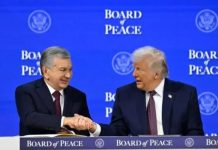LONDON, 14 August 2016: Kashmiris are facing an existential crisis under Indian army occupation, said Kashmiri academic, novelist and activist Nitasha Kaul at a seminar at School of Oriental and African Studies (SOAS) organised by South Asia Solidarity Group (SASG).
“It is as though there is a hierarchy of lives – for some, many more have to be lost, before people listen.” Ms Kaul said.
She said India’s relationship with Kashmir—humiliating attitude towards them, killing, injuring and blinding of innocent people, intimidating of journalists, and clamping down on the media and shutting down internet and mobile communication— was like Britain’s relationship with India under colonial rule.
Ms Kaul, a Kashmiri Pundit herself said that the uprising of Kashmiri people has nothing to do either with religion or with Pakistan. Kashmir happens to be a Muslim majority territory and India is using it as a pretext to demonise a people’s uprising as separatist. In today’s Islamophobic environment it fits well with the broader narrative, she said.
Ms Kaul spoke of India’s oft repeated claim that Kashmir is an “integral part of India” and called it a very “imperial” attitude. “Why do you have to keep on repeating it? And why do you have to kill people to keep it integral?” She said that Kashmir is not like any other Indian state. It has its own history. She stressed that until 1953 when Sheikh Abdullah was arrested by Jawahar Lala Nehru, Kashmir had its own flag and own Prime Minister, not a Chief Minister.
Also speaking at the meeting was editor of Urdu Media Monitor M Ghazali Khan. He said that Babri Mosque, Muslim Personal law, Urdu and Minority Character of Aligarh Muslim University each and every controversy being used and exploited by BJP was created by the Congress. He said that during its tenure Congress engineered anti-Muslim riots, BJP has modified the trend with its “Gujarat Experiment” adding and adopting in it “Love Jihad”, “Ghar wapsi” and “Gau Raksha” as the situation requires.
Mr Khan added, “Soon after the partition a totally false and mischievous premise was created in India that Muslims alone were responsible for that historic blunder and was used and continues to be used as a weapon to victimize them. However, the publication between 1970 and 1983 of secret and official documents (Transfer of Power 1942-47) that hitherto had been in possession of the India Office Library, present a different picture of that period. In the light of these documents Gandhi, Nehru and Patel appear to be as much responsible for the partition as was Mohammad Ali Jinnah, founder of Pakistan.”
He quoted Maulana Abul Kalam Azad from his book India Wins Freedom in which Maulana writes, “It must be placed on record that the man in India who first fell for Lord Mountbatten’s idea was Sardar Patel. Till perhaps the very end Pakistan was for Jinnah a bargaining counter, but in fighting for Pakistan, he had overreached himself.
buy female viagra online noprescriptionrxbuyonline.com/female_viagra.html no prescription
His action had so annoyed and irritated Sardar Patel that the Sardar was now a believer in partition…In fact Sardar Patel was fifty per cent in favour of partition even before Lord Mountbatten appeared on the scene. He was convinced that he could not work with the Muslim League. He openly said that he was prepared to have a part of India if only he could get rid of the Muslim League. It would not perhaps be unfair to say” Maulana goes on, “that Vallabhbhai Patel was the founder of Indian partition.”
Mr Khan continued by noting that the Hinduva elements who had been collaborating with colonial masters had started working to divide communities as early as 1920s or may be much before that. He quoted noted Urdu writer Maulana Majid Dariabadi as having written, “In [19]20-21 no one knew what Hindu-Muslim riots were. In the beginning of 1924 this epidemic had broken out with full force… Each petty argument resulted into distrust and doubts. On one hand there was the rise of organisation of shudhdhi programmes on the other hand it was responded to by calling preaching groups. A discussion starting with politics always ended on dharam and Iman [religion and faith].”
He said also quoted known freedom fighter Maulana Mohammad Ali Jauhar has having written to his daughter, 6 November 1930, from London where he had come to attend the Roundtable Conference as, “News that we here have received through American newspapers create a hope that the demand for India will be for a united one – May God also cause it so. Success in whatever the conditions is very difficult yet is necessary…May, after having travelled overseas, the [Hindu] Maha Sabhai mind-set change and Indians realise in true sense the curse of slavery that they are under. May they overcome their desire to dominate and subjugate one another and, instead, strive jointly together to free themselves from the slavery by others? May God inspire the Hindus and the Muslims to do justice with each other and treat each other fairly. May they abhor slavery so much that they neither accept to be slaved by others nor try to enslave others. Amen!”
Mr Khan stressed that the only way forward was a strong alliance between Dalits, Muslims and all other secular forces in India.
Dalit activist and Chairman of CasteWatch UK Satpal Muman who was also due to speak could not personally attend the seminar but sent a written speech that was read out by at the meeting. In his message Mr Munan sent his solidarity with the hugely inspiring and significant Dalit Asmita march adding that the “stinking caste system” had followed Indians to the UK and the current British government acting undemocratically by ignoring legislation passed by parliament safeguarding Dalits from discrimination in the UK.
Academic and activist Kalpana Wilson, chairing the meeting on behalf of South Asia Solidarity Group also expressed her solidarity with the Dalit movement in India. She said this was a hugely significant moment with Dalit demands for land hitting at the base of Hindutva economic policy of unscrupulously handing over land owned by the people to corporates like Ambani and Adani.
The seminar also heard a forceful narrative on Dalit lives titled “Black and Blue” written and read out by actor and story writer, Saunvedan Aparanti.
He said, “What comes to your mind when you think of India? If you’ve been seduced by films, books, pictures and anglophile Indians over the last century then you will no doubt paint a happy picture. You might romanticise the poor yet happy people, the colours, the cuisine, the attire, the mystics, the music, the dance, the cacophony, the heat and the sensory overload of this one country. The only colour missing in your picture will be any shade of black because black is a colour that India hides. Black is a colour that India detests whether it be the colour of your skin or the colour of the sewer that you’re lowered in. A bottomless pit is where you will find the true colour of India.”
Ends
South Asia Solidarity Group is an anti-imperialist, anti-racist organization based in Britain.
We are committed to supporting, publicising, and building solidarity with people’s struggles for justice and democracy and against exploitation, imperialism and war in the countries of South Asia.
We are involved in developing links between these movements and similar struggles in Britain. Our activities and analysis make the links between the global, US-led ‘war on terror’, neoliberal economic policies which mean corporate plunder of the people and resources of South Asia and the current human rights violations, attacks on basic services and intense racism of the British state.
We aim to develop and project an understanding of the resistance to these processes taking place in South Asia, Britain, and globally from a revolutionary left perspective.
For more information please visit: www.southasiasolidarity.org





